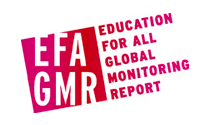Sustainable Development Goal (SDG) education targets should be specific, clear, measurable, realistic and relevant, according to a policy paper by the Education for All (EFA) Global Monitoring Report team.
‘Where do the proposed education targets fall short?' reviews the seven proposed SDG education targets and three related means of implementation (MOI), and recommends changes to ensure that the targets are ‘specific, measurable and achievable,' in line with the discussion on targets in the UN Secretary-General's Synthesis Report on the post-2015 development agenda.
 10 February 2015: Sustainable Development Goal (SDG) education targets should be specific, clear, measurable, realistic and relevant, according to a policy paper by the Education for All (EFA) Global Monitoring Report team. ‘Where do the proposed education targets fall short?’ was prepared as a contribution to the technical review of the SDGs. It reviews the seven proposed SDG education targets and three related means of implementation (MOI), and recommends changes to ensure that the targets are ‘specific, measurable and achievable,’ in line with the discussion on targets in the UN Secretary-General’s Synthesis Report on the post-2015 development agenda.
10 February 2015: Sustainable Development Goal (SDG) education targets should be specific, clear, measurable, realistic and relevant, according to a policy paper by the Education for All (EFA) Global Monitoring Report team. ‘Where do the proposed education targets fall short?’ was prepared as a contribution to the technical review of the SDGs. It reviews the seven proposed SDG education targets and three related means of implementation (MOI), and recommends changes to ensure that the targets are ‘specific, measurable and achievable,’ in line with the discussion on targets in the UN Secretary-General’s Synthesis Report on the post-2015 development agenda.
The six-page paper is based on a section of the forthcoming 2015 EFA Global Monitoring Report (GMR), which will be released in April 2015. The GMR is developed by an independent team and published by the UN Educational, Scientific and Cultural Organization (UNESCO).
Several SDG education targets lack specificity and clarity, such as those on upgrading education facilities to “effective learning environments” and “decent” jobs, it notes. Such targets present measurement challenges and therefore threaten accountability, the report says. It adds that ambitious targets, such as those unlikely to be met in a 15-year time frame, are unlikely to receive political commitment and support.
Although the SDG education goal aims to achieve inclusive, equitable education, targets do not clearly articulate equity issues, and fail to define the concept of equal access, which the report cautions could lead to marginalized groups being left behind. For example, the targets do not reference free and compulsory basic education, even though the cost of education is “one of the most significant barriers to participation among children and youth from poor households.” The report also points out that some targets promote education levels that will benefit more advantaged students, which could lead to inequitable public spending.
The report recommends ways to refine targets and MOI to become more specific, equitable and measurable, among other criteria.
The EFA Steering Committee discussed the formulation of education targets and proposed recommendations at an EFA Steering Committee meeting in Paris, France on 5-6 February 2015. [Publication: Where Do the Proposed Education Targets Fall Short?] [EFA Blog Post] [GMR Webpage]